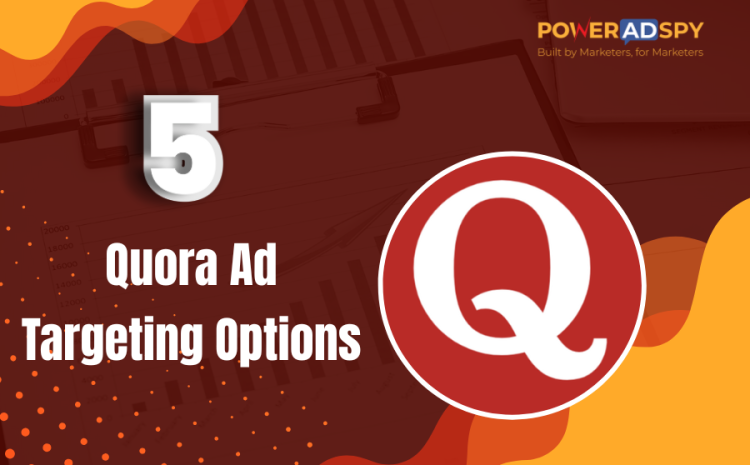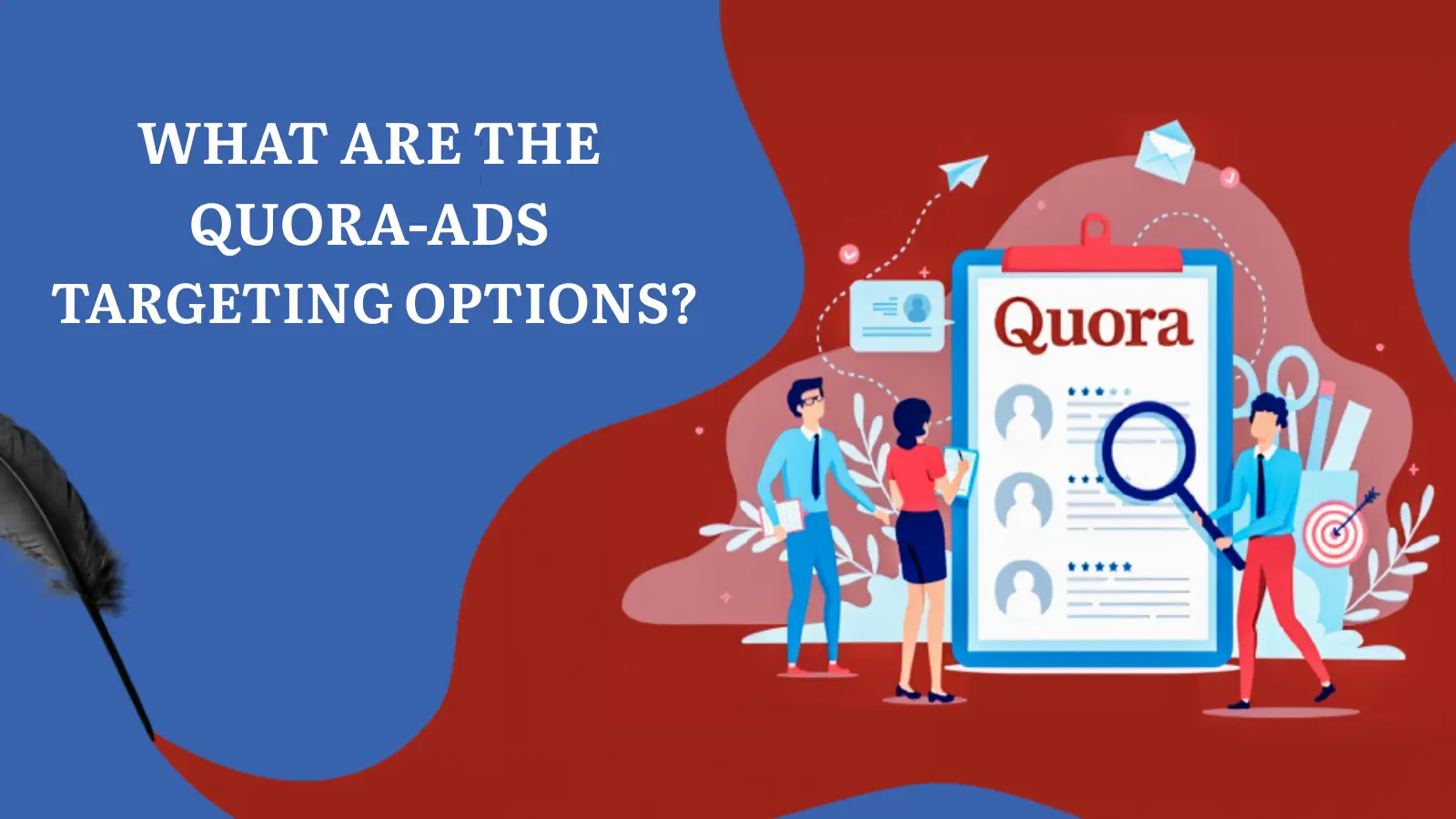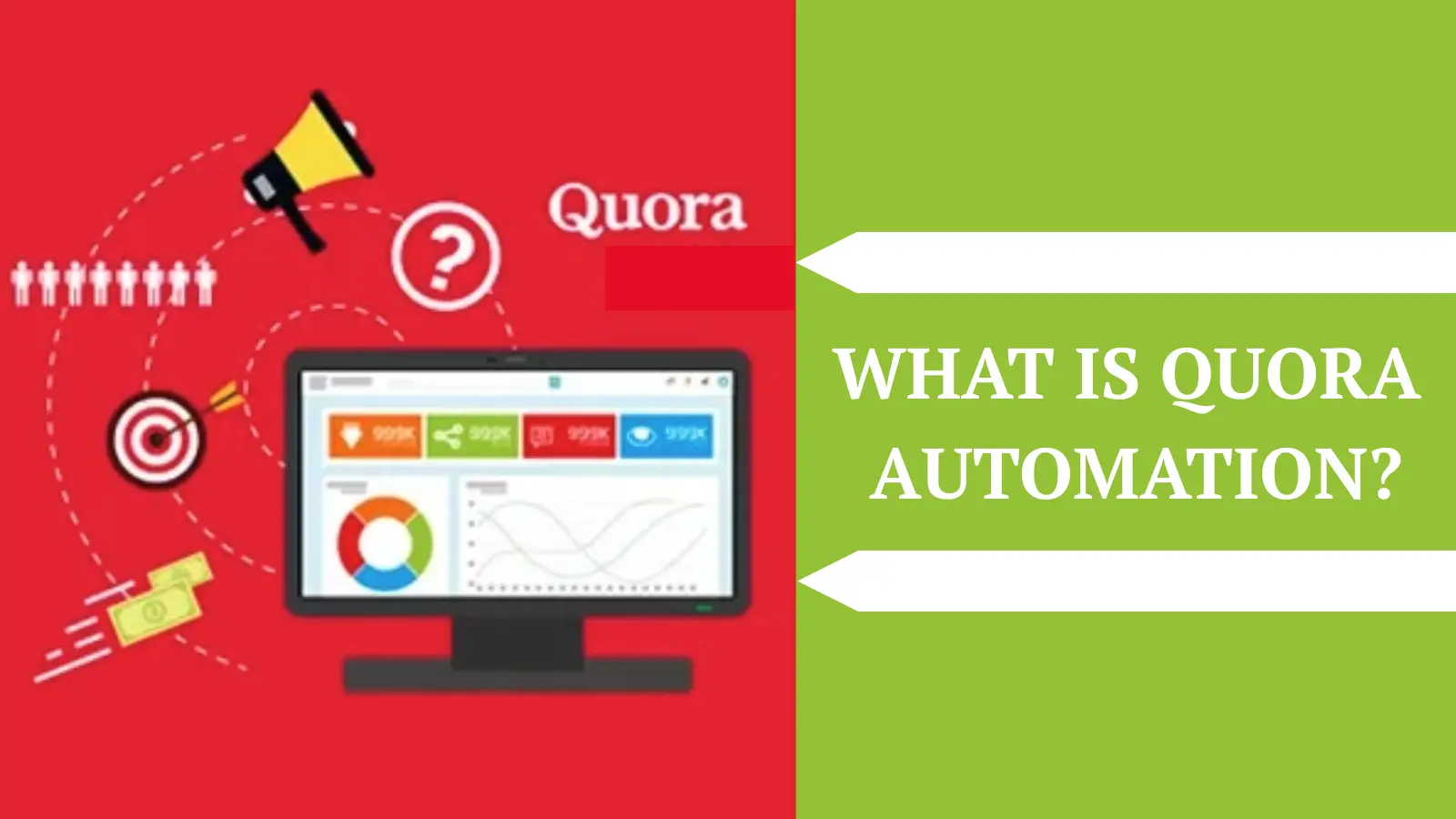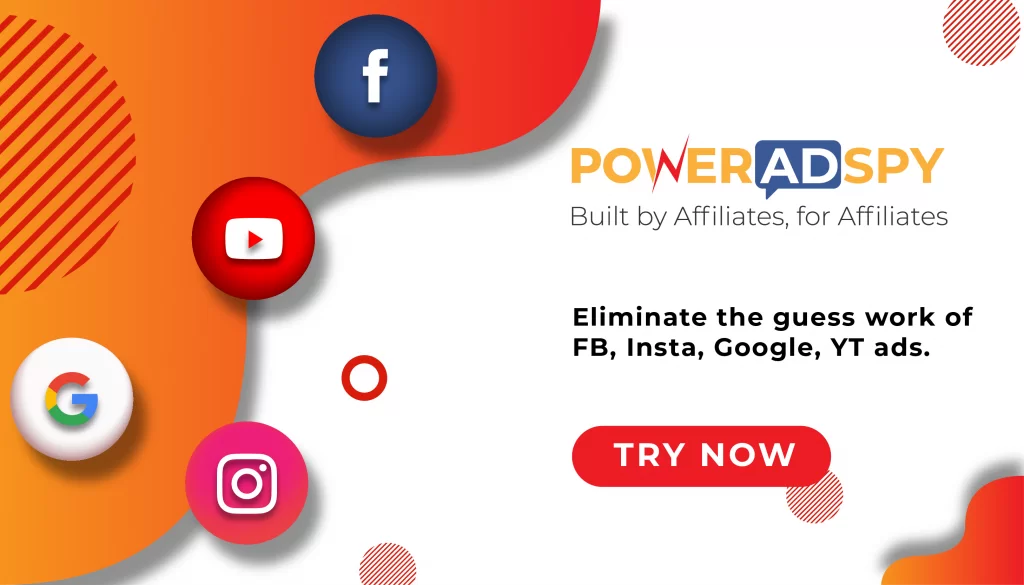5 Quora Ad Targeting Options To Boost Your Quora Ads
Quora ad targeting allows advertisers to reach users by aligning with their interests, location, online behaviour, and demographic profile. Since Quora is a platform where people ask questions, seek advice, and explore in-depth topics, your ads can appear when users are highly engaged and actively seeking solutions.
Quora targeting is able to match your message with user intent, whether someone is researching a product, comparing services, or looking for recommendations. With options like contextual, audience, behavioural, and broad targeting, you can deliver relevant ads in the right context, to the right audience, at the perfect time. This not only increases ad visibility but also drives more meaningful engagement and higher conversion potential.
In a hurry? Listen to the blog instead!
Why Quora Ad Targeting Is Important?

Here is the detailed breakdown on how Quora ad targeting is important –
Nowadays, reaching the right audience has become more crucial than ever for effective communication. That’s where Quora ad targeting comes in.
Unlike other platforms where users passively scroll, Quora users are actively seeking answers, solutions, and insights. They’re already curious and engaged, making them the perfect audience for thoughtful and relevant ads. With Quora’s unique targeting options, you can place your brand right where it matters most: in front of users asking questions related to your product or industry.
Whether you’re targeting by topic, specific questions, user behaviour, or interests, Quora ad targeting allows you to tailor your campaigns with precision. This means better click-through rates, higher conversion rates, and smarter spending. You’re not casting a wide net, you’re reaching the people who are already primed to care.
If you’re looking for a cost-effective way to drive qualified traffic, increase brand awareness, or generate leads, mastering Quora ad targeting should be a top priority in your strategy.
What Are The Quora Ad Targeting Options?
Here are five Quora ad targeting options that you must know –
1. Topic Targeting
Topic targeting is a process through which you can show your ads to users who are searching for questions and answers related to a particular topic. Quora divides its vast content into smaller topics. Then the advertisers can select the topics related to their preference, and after that, the ads will appear on the question page and will fall under that topic. This is how topic targeting works. For example, if you have a fitness brand, then you need to target topics like – ‘’weight loss”, “health and wellness”, and “balanced meal”.
2. Question Targeting
This is one of the most powerful forms of Quora ad targeting. Question targeting refers to the target specified for the individual questions on Quora. Rather than targeting a pool of topics, you need to select specific questions where you want the ad to appear. This truly offers high relevance. For example, if you are promoting a clothing brand, then you need to target a question like: what are the qualities of a premium quality cloth?
Here you can control where you want your ad to be.
3. Keyword Targeting
Keyword targeting allows you to display your ads on questions containing some specific keywords. It provides you with two options to target your Quora ads according to keywords:-
- Broad match
It casts a wide net, your ad appears for searches loosely connected to your keywords, including synonyms and variations. It’s perfect when you want to attract a diverse crowd without obsessing over every keyword.
- Phrase match
It acts like a keyword filter, your ad only shows up when someone searches using your exact phrase, in the right order. It’s great for zeroing in on people who are specifically looking for what you offer.
You need to put a list of keywords, and your ads will be shown on the relevant questions that include the desired keywords. There are many benefits of keyword targeting. It is widely used as it catches all the questions in which the keywords are included.
4. Audience Targeting
Audience targeting helps you to reach out to the users based on the data and information collected from your website, behaviour similarities, and emails.
- Website retargeting
It reaches users who have previously interacted with your website. You need to install the Quora pixel on your desired site to track users and their behaviour. After that, you can show them ads on Quora through retargeting. It is good as it re-engages the audience who visited your site earlier. - List – Match Audience
It targets the audience from the list of email addresses that you have uploaded earlier. Quora matches the emails with the user’s account and then displays ads to them. For that, you need to keep your lists up-to-date. - Lookalike Audience
Here, Quora reaches the users through existing customers and website visitors. Quora inspects the site visitors and finds users with a similar nature.
5. Interest Targeting
Interest targeting is the process through which you can display your ads to users who have recently interacted with content related to a particular interest.
- Working of interest targeting
Interest targeting identifies the Quora-based users who have a history of interacting on certain topics. - Benefits of interest targeting
Interest targeting helps the advertisers to reach a wide range of audience who are interested in certain topics, even if they are not engaging with those topics at the moment. It can be beneficial to build a long-term relationship with potential customers.
Explain Quora-Ads Manager
The Quora Ads Manager is a self-service tool that enables businesses to design, run, and track their advertising campaigns on Quora. It works similarly to platforms like Google Ads or Facebook Ads, offering targeting tools, budget control, scheduling, and performance tracking. What makes it unique is its focus on intent-driven targeting, reaching users actively seeking information.
1. Manage Ads
In this section, you can handle all aspects of your campaigns. It lets you upload new ads, make edits, pause or delete campaigns, and download data when needed. It’s your central hub for managing ad performance and updates.
2. Pixels and Events
This area helps you track user activity through Quora Pixel, a small code added to your website. The base pixel should go on all pages, while the event pixel is used on specific pages to track actions like purchases or sign-ups. It’s key for measuring conversions and optimizing results.
3. Audience
Here, you define who sees your ads. You can target users based on previous website visits, upload custom contact lists, or use lookalike audiences to reach similar users. This helps deliver your ads to the most relevant audience at the most effective time.
4. Lead Gen
The Lead Gen section allows you to build forms directly in your ads. This makes it easy for users to share their info without leaving Quora, helping you collect high-intent leads in just a few clicks.
5. Reporting
This section helps you generate detailed reports to assess your campaign’s performance. You can assign a name to the report, select the data you wish to include, set a date range, and specify the frequency of updates. It’s ideal for tracking ROI and refining strategy.
What Do You Mean By Quora-Ads Management?
Quora ads management is an online platform where users actively participate in seeking answers and solutions to several questions. It involves creating and optimizing the advertising campaigns on Quora. Effective management ensures that ads are delivered to the appropriate audience at the optimal time.
Read More:
Quora Ads: Does Your Business Need Them?
A Comprehensive Guide To Marketing On Quora In 2022
What Is Quora Automation?
In Quora ads, Quora automation means an ad targeting option also called automated targeting. This feature enables Quora to automatically choose where to show your ads based on its algorithm and user behaviour data. Here, you don’t need to specify your interest, topics, subjects, questions, or keywords. It uses historical data to predict which type of users are most likely to engage with your ends.
Quora Marketing Automation
Quora marketing automation can help you to automate repetitive marketing tasks, which helps to save time and resources while improving marketing efficiency and effectiveness. While you can make use of automation tools like Socinator to manage your Quora accounts actively and efficiently without much manual effort.
Quora Automation Tool
Quora contains some automation and targeting tools for its website –
1. Question & Answer Posting Bots
These bots are designed to automate the posting of questions and answers based on targeted keywords or topics.
-
Automated Question Generation
Create and post questions centered around specific keywords or trending topics to spark discussion and generate visibility.
-
Automated Answer Posting
Automatically post pre-written or AI-generated answers to relevant questions to promote websites, services, or products—often used in content marketing campaigns.
2. Upvote & Engagement Bots
Engagement tools increase the visibility and credibility of content through artificial interactions.
-
Upvote Automation
Automatically upvote your answers or selected posts to boost their position in feed rankings and improve perceived authority.
-
Commenting & Following Bots
Automate actions like commenting on posts or following users to simulate genuine activity and attract reciprocal engagement.
3. Scraping & Data Extraction Tools
These tools are used to collect and analyse large amounts of publicly available data from Quora for market research or content strategy.
-
Content Scraping
Extract popular questions, high-ranking answers, and trending topics within a niche to guide content creation.
-
User Profiling
Gather data on user activity, bios, and interactions for lead generation or competitor analysis.
-
Sentiment Analysis
Analyse answer tone and sentiment for deeper insights into community opinions and preferences.
4. Quora Analytics Tools
These tools help track and analyse performance metrics across your content and profile.
-
Performance Tracking
Monitor views, upvotes, shares, and click-through rates to evaluate the effectiveness of your content strategy.
-
Trend Analysis
Identify high-performing questions, top contributors, and audience engagement patterns for strategic planning.
5. Profile Growth Tools
Designed to accelerate user profile growth and engagement over time.
-
Automated Follows/Unfollows
Simulate organic community interaction by following or unfollowing targeted users in bulk.
-
Direct Messaging Bots
Send automated messages to followers or users within a niche for outreach or promotional purposes.
How To Create Your First Ad Campaign?
Step 1: Set Up Your Quora Ad Account
Start by heading to Quora for Business and clicking “Get Started.” You’ll need to enter your campaign name, email, business details, website, industry, and billing country. Be mindful of the billing info, it determines your currency going forward. Once done, hit “Start Advertising” to access the Quora Ads Manager dashboard.
Step 2: Start a New Campaign
Click the “New Campaign” button to begin. Quora lets you choose from goals like brand awareness, website traffic, app installs, lead generation, or conversions. Pick the objective that matches your business needs. If you skip scheduling, your ad begins running as soon as it’s approved.
Step 3: Build an Ad Set
Now it’s time to create your ad set. You can set multiple ad sets based on different geographic areas. Want to avoid certain locations? You can easily exclude them, ensuring your ads appear only in the desired locations.
Step 4: Select Your Main Targeting Option
Choose how you want to target your audience. Quora gives options like contextual (based on topics and questions), audience (based on custom lists), behavioural, or even broad targeting. This helps ensure your ads reach the right people.
Step 5: Add Extra Targeting Filters
Take your targeting further by refining by device type or gender. For example, if you’re selling men’s watches, you can target only male users. This ensures your ads are directed to the appropriate audience.
Step 6: Set Your Campaign Bid
Now, decide how you want to optimize your ad delivery. Choose from clicks (for traffic), impressions (for visibility), or conversions (if using the Quora Pixel). Pick the one that best aligns with your campaign goals.
Step 7: Design Your Ad
To finish, create your actual ad. Give it a name and pick a format: image ad (with visuals), text ad (simple and clean), or promote an existing Quora answer. Each type has its own strengths—choose the one that fits your strategy best.
How PowerAdSpy Helps You With Quora Ad Targeting?
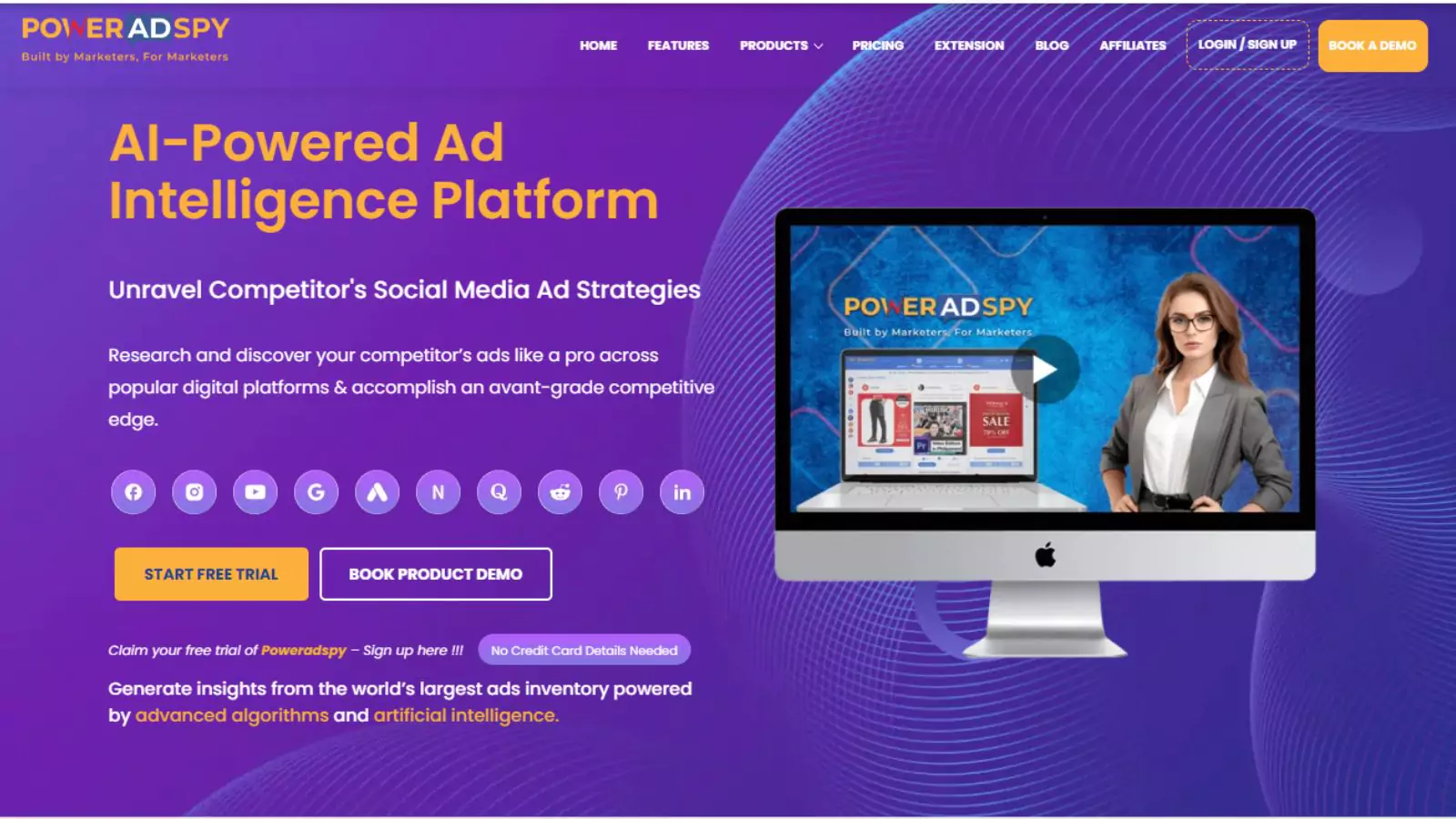 When it comes to running successful ad campaigns, insight is everything. That’s where PowerAdSpy comes in. This powerful ad intelligence tool gives you a behind-the-scenes look at what’s already working in your niche, especially when it comes to Quora ad targeting.
When it comes to running successful ad campaigns, insight is everything. That’s where PowerAdSpy comes in. This powerful ad intelligence tool gives you a behind-the-scenes look at what’s already working in your niche, especially when it comes to Quora ad targeting.
With PowerAdSpy, you can discover the top-performing Quora ads in your industry, analyze the creatives, track engagement, and see which topics or questions other advertisers are targeting. Instead of guessing where to place your ads or what messaging will resonate, you can make data-driven decisions based on real examples.
By learning from successful competitors, PowerAdSpy helps you refine your Quora ad targeting strategy, saving time, reducing ad spend, and increasing your chances of running high-converting campaigns.
Key features of PowerAdSpy are as follows –
1. Find Ads Using Specific or Related Keywords
This helpful social ad analysis tool lets you search for ads using exact or similar keywords. You can easily explore a range of results, from very specific to more general, to get a better understanding of what’s working.
2. Location-Based Targeting Made Easy
PowerAdSpy has access to millions of ads, making it easy to see exactly where your competitors are targeting their audiences. This helps you find the right locations and people who are more likely to be interested in what you offer.
3. Insights Based on Real Engagement
PowerAdSpy gives you detailed insights into how people are interacting with social ads. By looking at likes, shares, and comments, you can quickly spot which ads are truly connecting with your audience and standing out in your niche.
Conclusion
Quora ad targeting is one of the most unique and powerful platforms through which you can reach a highly skilled, intelligent, and intent-driven audience through various targeting options like keyword, topic, interest, and audience targeting. This is a strong foundation for marketers to deliver relevant information and timely messages that align with their audience. Almost 3 out of 4 people use their mobile devices to access Quora. Especially if you are marketing on Quora, you should target mobile audiences. As it can help you to gain better reach and exposure.
FAQs ( Frequently Asked Questions )
1. Are Quora ads suitable for B2B campaigns?
Ans: Yes, Quora ads are tremendous for B2B campaigns. Professionals frequently visit the platform to seek advice on industry-specific topics, making Quora advertising an excellent way to reach decision-makers when they’re researching solutions.
2. Are Quora ad targeting suitable for e-commerce brands?
Ans: Yes, Quora advertising works well for e-commerce brands, especially if your products solve problems or fulfil specific needs. Since users often ask practical, solution-seeking questions, Quora ads allow you to present your products in a helpful, relevant context.
3. How is Quora ad targeting different from other platforms like Facebook or Google?
Ans: Quora ads focus on user intent based on the questions people ask or read. Unlike Facebook, which targets users based on social behaviour, or Google, which is driven by search queries, Quora advertising lets you engage users while they’re actively seeking knowledge or solutions.
4. How do I choose the right target audience for my Quora ad targeting?
Ans: Start by understanding your audience’s needs and behaviours. Quora advertising lets you target users through specific topics, keywords, or interests. With Quora ads, you can refine your targeting to reach people based on what they’re genuinely curious about or trying to solve.

